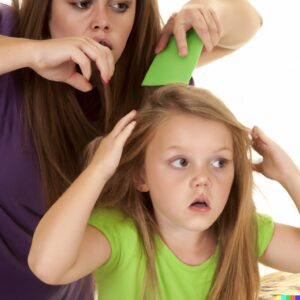How to spot head lice early
1. What are the symptoms of head lice and how can you tell if your child has them?
Symptoms of head lice include itching and irritation of the scalp, as well as finding lice or nits (lice eggs) in the hair. If you suspect your child has head lice, check their hair for signs of infestation.
2. How do you get head lice and what are the risks associated with them?
There are a few ways you can get head lice. One way is by close contact with someone who has them. This could be through hugging, sharing hats or hairbrushes, or lying on the same pillow. Head lice can also spread by using contaminated combs, towels, or other objects.
Although head lice are not generally harmful, they can cause itching and irritation. In some cases, this can lead to secondary infections of the skin. If you have head lice, it’s important to treat them right away to prevent them from spreading to others.
3. What is the treatment for head lice and how long does it take to work?
There are a few different ways to treat head lice, but the most common is to use a special shampoo or cream rinse or hire a lice removal professional. These products usually contain pesticides that kill the lice. It can take a few lice treatments to completely get rid of the lice, and you may need to comb them out with a fine-toothed comb
4. How can you prevent head lice from spreading in your home or school community?
There are a few things you can do to help prevent head lice from spreading:
– Encourage your child to avoid sharing personal items like hats, scarves, combs, or brushes with others.
– Teach your child not to share clothing or bedding with others.
– Vacuum regularly and wash bedding, clothing, and stuffed animals in hot water to kill any lice or eggs that may be present.
– Inspect your child’s hair regularly for signs of lice and nits (eggs). If you find anything, treat it right away to prevent the spread of head lice.
5. Are there any over-the-counter treatments for head lice that actually work, or should you see a doctor instead?
There are a few over-the-counter treatments for head lice that can take care of part of the problem. These include shampoos, creams, and lotions. You can also use a fine-toothed comb to remove the lice from your hair. However, it is generally best to see a lice removal service if you think you have head lice. This is because head lice can be difficult to get rid of and may require a visit to a lice clinic.
